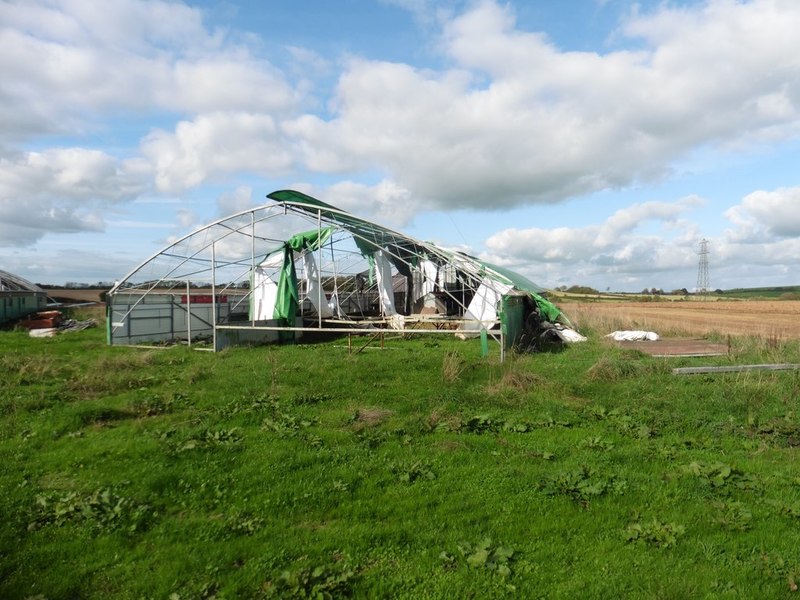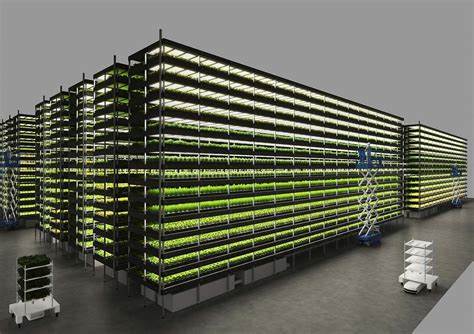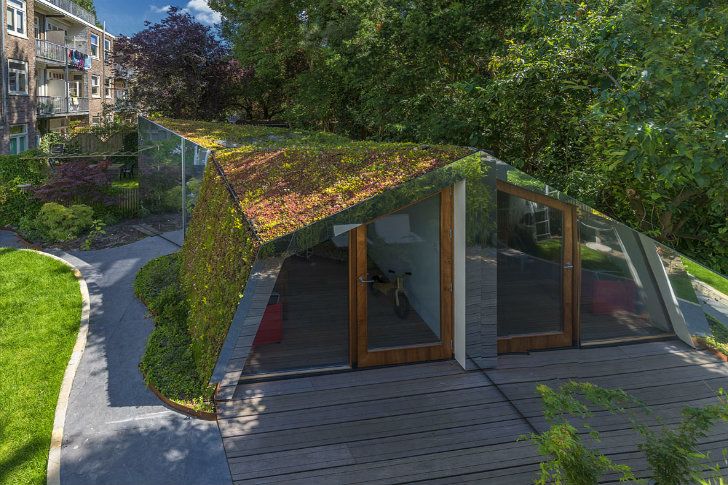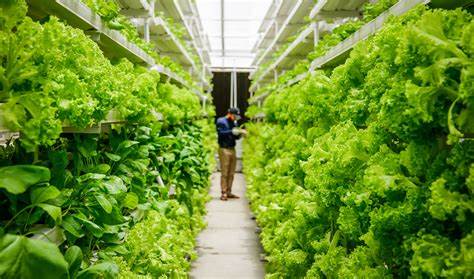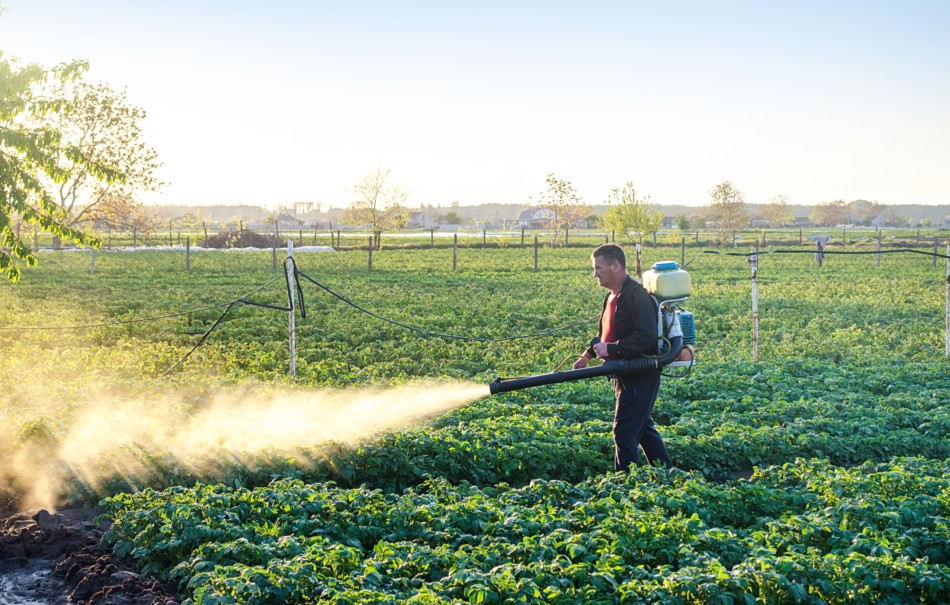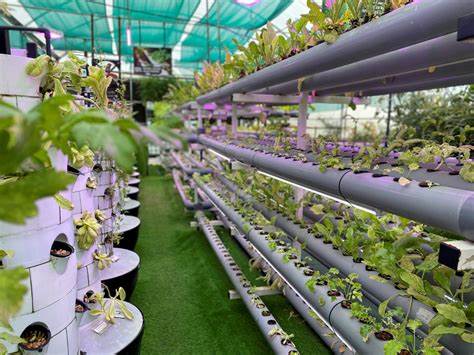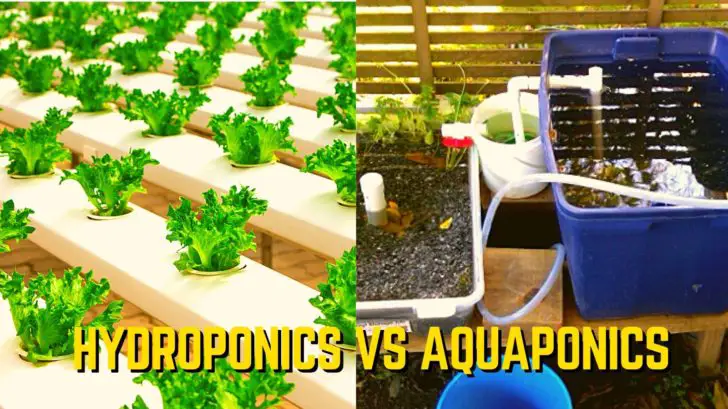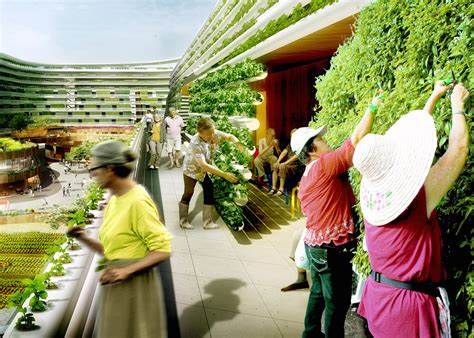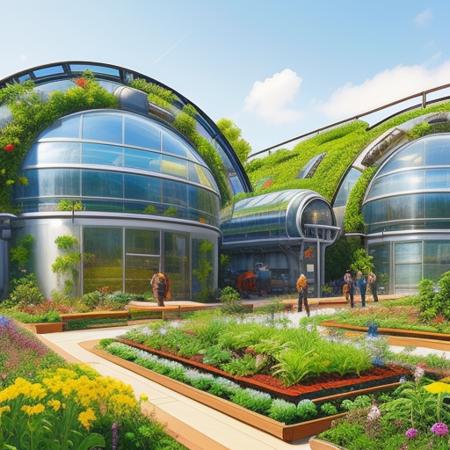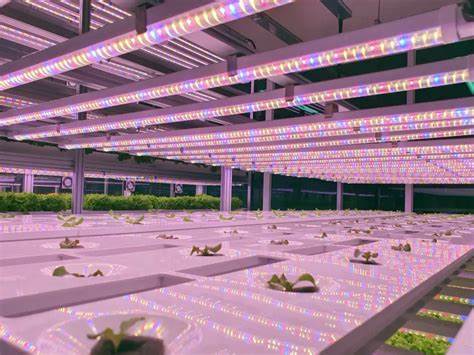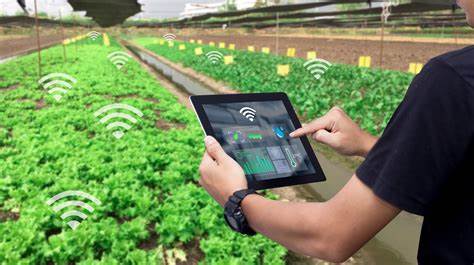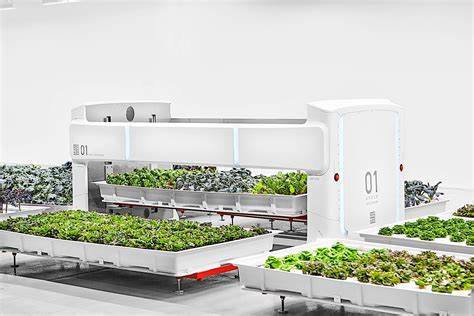Transforming Abandoned Buildings into Vertical Farms: Revolutionizing Urban Agriculture for Food Security Introduction The concept of transforming abandoned buildings into vertical farms has gained traction as a solution to urban agriculture and food security challenges. By utilizing unused urban spaces, vertical farming offers the potential to increase food production, reduce transportation costs, and promote sustainable agriculture. This article explores the historical background, key concepts, benefits, case studies, current trends, challenges, and future outlook of vertical farming in abandoned buildings. Historical Background Vertical farming has evolved over the years, with innovative techniques and technologies being developed to maximize agricultural productivity in…
Author: sohailkhan2k22
Vertical Farms in Industrial and Retail Spaces: Revolutionizing Urban Agriculture Introduction Vertical farming is an innovative approach to agriculture that has gained significant traction in recent years, particularly in urban areas where land is limited. By utilizing vertical space within industrial and retail spaces, this modern farming method offers numerous advantages and opportunities for sustainable food production. This article aims to explore the concept of vertical farming in industrial and retail spaces, its historical background, key concepts, main discussion points, case studies, current trends, challenges, future outlook, and the significance of this revolutionary approach. Historical Background Vertical farming has roots…
Introduction Vertical farming has gained significant attention in recent years due to its potential to revolutionize sustainable farming practices. In this article, we will explore the concept of LEED Certification for vertical farms and its relevance in promoting sustainable agriculture. Furthermore, we will delve into the importance of LEED Certification for vertical farms and its potential to address food security and sustainability challenges. Historical Background The development of LEED Certification can be traced back to the early 1990s when the U.S. Green Building Council recognized the need for a standardized rating system for sustainable building practices. Concurrently, vertical farming emerged…
Vertical Gardens and Green Roof Synergy: Enhancing Urban Environments Introduction In today’s rapidly urbanizing world, the integration of nature into our cities has become more important than ever. The concept of Vertical Gardens and Green Roofs, also known as living walls and green facades, has emerged as an innovative solution to bring nature back into our concrete jungles. This article explores the definition, benefits, design considerations, case studies, current trends, challenges, and future outlook of Vertical Gardens and Green Roof Synergy. Historical Background The roots of Vertical Gardens and Green Roofs can be traced back to ancient civilizations such as…
Vertical Gardens: Exploring Benefits, Design, and Future Implications Introduction Vertical gardens have gained immense popularity in urban environments as a solution to connect humans with nature. This article explores the importance of understanding vertical gardens and their potential benefits, providing a more comprehensive understanding of their environmental, health, and economic aspects. Historical Background From ancient wonders like the Hanging Gardens of Babylon to present-day innovations, vertical gardens have a rich and evolving history. This journey highlights remarkable developments and milestones that have shaped the existence of vertical gardens. Key Concepts and Definitions Vertical gardens differ significantly from traditional horizontal gardens,…
Vertical Gardens: Inspiring Creativity and Nurturing Artistic Expression Introduction Vertical gardens have emerged as a captivating source of inspiration for creatives across various artistic disciplines. In this article, we will explore the relevance and importance of vertical gardens as a unique medium for sparking creativity. The mesmerizing beauty and intricate design of vertical gardens make them an intriguing subject worth exploring further. Historical Background The history of vertical gardens dates back to ancient civilizations, where hanging gardens were created in Babylon, showcasing the early recognition of the aesthetic appeal of vertical greenery. Over time, the concept evolved, with notable contributions…
Vertical Farming: The Future of Sustainable Agriculture Introduction Vertical farming is an innovative approach to agriculture that has gained significant attention in recent years. This article delves into the concept of vertical farming, its historical roots, key concepts, main discussion points, case studies, current trends and developments, challenges and controversies, future outlook, and concludes with a summary of the main points discussed. Historical Background The concept of vertical farming can be traced back to the Hanging Gardens of Babylon, one of the Seven Wonders of the Ancient World. However, it wasn’t until the early 20th century that modern vertical farming…
Revolutionizing Agriculture for a Sustainable Future Introduction Vertical farming is an innovative approach to agriculture that involves cultivating crops in vertically stacked layers using specialized systems and technologies. This article provides a comprehensive overview of vertical farming, covering its historical background, key concepts, advantages and challenges, case studies, current trends and developments, controversies, future outlook, and references. Historical Background Vertical farming can be traced back to the early 20th century when forward-thinking individuals began exploring alternative methods of food production. However, it gained significant momentum in the 1990s when Dr. Dickson Despommier, a professor at Columbia University, popularized the idea…
Revolutionizing Food Production: A Comprehensive Comparison of Vertical Farming and Traditional Agriculture Introduction The pressing issues of global population growth and resource scarcity have made innovative and sustainable farming methods more crucial than ever. This article aims to delve into the significant disparities between vertical farming and traditional agriculture, with a focus on their environmental impact, resource efficiency, crop yield, and seasonal availability. By examining case studies, current trends, challenges, and future prospects, we can gain a deeper understanding of the potential implications of vertical farming and its relationship with traditional agriculture. Historical Background: Evolution of Farming Practices Traditional agriculture…
Vertical Farming: Maximizing Sustainability and Efficiency for the Future Introduction Vertical farming revolutionizes the traditional concept of agriculture by utilizing innovative techniques to grow crops in vertical layers, rather than on vast expanses of land. This article delves into the various aspects of vertical farming, highlighting its relevance and importance in achieving sustainability goals. Historical Background The history of vertical farming dates back to the Hanging Gardens of Babylon, showcasing humanity’s early attempts to cultivate plants in a vertical structure. Over time, significant milestones and developments propelled vertical farming to its current state of prominence. Key Concepts and Definitions Vertical…
Vertical Farming: Revolutionizing Food Security for a Sustainable Future Introduction Vertical farming has emerged as a crucial solution in ensuring global food security. With a growing population and increasing urbanization, traditional agricultural methods are facing challenges in meeting the demand for fresh, nutritious produce. This article explores the historical background, key concepts, and main discussion points surrounding vertical farming. By examining its environmental benefits, increased crop yield and efficiency, and urban food production and accessibility, we can understand the potential of vertical farming in addressing food security concerns. Historical Background The concept of vertical farming can be traced back to…
Introduction Vertical farming has emerged as a revolutionary approach to sustainable agriculture, offering a solution to the challenges posed by limited arable land and increasing urbanization. This article explores the different types of vertical farming systems and their significance in addressing food security and environmental concerns. Historical Background The concept of vertical farming dates back to early pioneers who envisioned a future where food production could be intensified through vertical space utilization. Over time, these visionary concepts evolved into practical vertical farming systems. Key Concepts and Definitions Vertical farming encompasses various systems that utilize vertical space to cultivate crops. The…
Hydroponics, Aeroponics, and Aquaponics: Revolutionizing Agriculture for Sustainable Food Production Introduction Innovative cultivation methods such as hydroponics, aeroponics, and aquaponics are gaining significant attention in the field of agriculture. These soilless cultivation techniques offer numerous advantages, including increased crop yields, efficient nutrient management, and reduced environmental impact. This article explores the historical background, key concepts and definitions, main discussion points, case studies, current trends, challenges, future outlook, and the significance of these alternative agricultural practices. Historical Background Hydroponics, the practice of growing plants in nutrient-rich water without soil, has ancient origins dating back to the Hanging Gardens of Babylon. However,…
Vertical Farming: Choosing the Right System for Success and Sustainability Introduction Vertical farming has emerged as a revolutionary concept in modern agriculture, offering a solution to the challenges of limited land availability and increasing food demand. In this article, we will explore the concept of vertical farming and its importance in today’s agricultural practices. Additionally, we will delve into the significance of selecting the right vertical farming system for successful and sustainable operations. Historical Background Vertical farming dates back to the early 20th century when the concept of utilizing multilevel structures for crop cultivation was first introduced. However, it is…
Vertical Farming: Revolutionizing Agriculture through Efficient Design Introduction Vertical farming has emerged as a groundbreaking solution to address the challenges of traditional agriculture. This innovative approach involves growing crops in vertically stacked layers, utilizing artificial light and controlled environments. The relevance of vertical farming lies in its potential to revolutionize food production, ensuring sustainability, and meeting the increasing global demand for fresh produce. Additionally, designing vertical farms with careful consideration of key principles and concepts is crucial for their success and long-term viability. Historical Background To fully understand the significance of vertical farming, it is essential to delve into its…
Vertical Farming Infrastructure: Revolutionizing Agriculture for a Sustainable Future Introduction Vertical farming infrastructure is a revolutionary concept that has gained significant attention in recent years. This article aims to provide a comprehensive overview of this innovative approach to agriculture, exploring its historical background, key concepts, main discussion points, case studies, current trends and developments, challenges and controversies, future outlook, and references. Historical Background The history of vertical farming can be traced back to ancient civilizations, where techniques such as terraced farming were employed to maximize agricultural output in limited spaces. However, the modern concept of vertical farming infrastructure emerged in…
Vertical Farming: Maximizing Space Utilization for Sustainable Food Production Introduction Vertical farming is a revolutionary concept that holds significant promise in addressing the pressing challenges of food security, sustainability, and urbanization. By utilizing innovative techniques and technologies, vertical farming enables the cultivation of crops in vertically stacked layers or structures, making efficient use of limited space. In this article, we will explore the importance of space utilization in vertical farming and how it maximizes productivity and efficiency. Historical Background The history of vertical farming can be traced back to the early 20th century when the idea of “skyscraper farms” was…
High-Tech Innovations in Vertical Farming: Revolutionizing Agriculture for a Sustainable Future Introduction The agricultural sector has experienced significant advancements with the introduction of high-tech innovations, and vertical farming is no exception. In this article, we will explore the definition of high-tech innovations in vertical farming and their relevance and importance in modern agriculture. Historical Background Over the years, vertical farming has undergone significant developments. We will delve into the origins of vertical farming and examine how high-tech innovations have contributed to more efficient and sustainable farming practices. Key Concepts and Definitions Vertical farming involves growing crops in vertically stacked layers…
Automation in Vertical Farms: Revolutionizing Agriculture Introduction Vertical farming is a cutting-edge agricultural technique that involves growing crops in vertically stacked layers. This innovative approach maximizes space utilization and requires minimal soil and water usage. One of the most significant advancements in vertical farming is automation, which has revolutionized the industry by streamlining operations and enhancing productivity. This article explores the relevance and importance of automation in vertical farms and its potential to address key challenges in traditional agriculture. Historical Background Vertical farming has its roots in the concept of hydroponics, which dates back to ancient civilizations. However, it wasn’t…
Vertical Farming: Illuminating the Future of Agriculture Introduction Vertical farming has emerged as a revolutionary concept in modern agriculture, offering a sustainable solution to the growing global food security challenge. As the population continues to increase, the need for efficient and resource-conscious farming methods becomes increasingly crucial. In this article, we will delve into the significance of proper lighting and climate control in vertical farms and explore how these factors contribute to the sustainability of this innovative farming practice. Historical Background Vertical farming has a rich history that can be traced back to the ancient Babylonians and their hanging gardens.…


